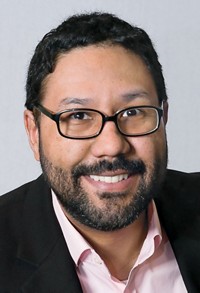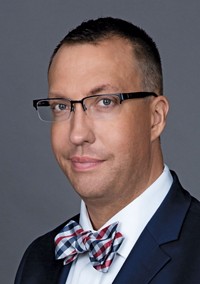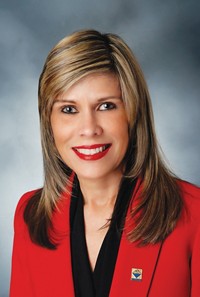Advertisement
Grab your lab coat. Let's get started
Welcome!
Welcome!
Create an account below to get 6 C&EN articles per month, receive newsletters and more - all free.
It seems this is your first time logging in online. Please enter the following information to continue.
As an ACS member you automatically get access to this site. All we need is few more details to create your reading experience.
Not you? Sign in with a different account.
Not you? Sign in with a different account.
ERROR 1
ERROR 1
ERROR 2
ERROR 2
ERROR 2
ERROR 2
ERROR 2
Password and Confirm password must match.
If you have an ACS member number, please enter it here so we can link this account to your membership. (optional)
ERROR 2
ACS values your privacy. By submitting your information, you are gaining access to C&EN and subscribing to our weekly newsletter. We use the information you provide to make your reading experience better, and we will never sell your data to third party members.
Comment
Comment: In support of our global chemistry community
by Angela K. Wilson, ACS immediate past president
October 14, 2023
| A version of this story appeared in
Volume 101, Issue 34

It is hard to believe that my time in the American Chemical Society presidential succession is ending soon. It has been a tremendous honor to serve ACS in this way. There have been many highlights, and among the best moments have been engaging with members in our local sections, student chapters, divisions, international chapters, and international student chapters. I have been impressed by the activities and involvement of members in so many places across the globe.
After visiting with numerous members around the world, I believe we need to build stronger connections between our international members, chapters, and student chapters and our domestic ones. Sharing more of our science and activities, legislative policies that impact the chemical sciences, and our collective best practices in education and training will enable our community to better address global scientific challenges and current and future workforce needs.
ACS has already made appreciable efforts to build these bridges through rich offerings of opportunities. For students, ACS offers an International Research Experience for Students program, leadership programs, and travel awards. For professionals, ACS provides Global Innovation Grants and Global Innovation Imperatives funds to foster international collaborations toward addressing global challenges. But there is still more ACS can do to build bridges. During my visits, with each research presentation, innovation, or chapter idea that I heard, I identified connections that would benefit multiple potential global partners. Making these connections happen needs much more than just one matchmaker. ACS as a whole needs to come together to help build these global bridges.
Members currently have the opportunity to vote on a proposal to include an international member on the ACS Board of Directors. I wholeheartedly support this proposal. It will provide a stronger bridge to our international membership and help with identifying and creating global activities and collaborations. There is also a second proposal—one that is in the earlier stages of consideration—to include international members on what is now a national ACS Council. We are not at all the first “American” society to offer international members a voice in governance. Many others, including the American Physical Society and the American Association for the Advancement of Science, have international representation in their leadership.
Globally, society is encountering numerous scientific challenges. Chemical scientists play a critical role in addressing many of them. Often, legislative leadership and a general understanding of the science underlying policy and policy decisions are also necessary. Policies made in Europe can affect companies in the US. Policies in the US can affect manufacturers in Asia and Africa. It is therefore important that the global scientific community communicate about its work with a voice that is accessible to the public and legislators. What are we doing? Why is it important? What are the underlying global consequences of policies or potential policies? It is vital that ACS members as well as the society interact with legislators to indicate how the chemical sciences tie into so many policies—including those in health, the environment, energy, the economy, education, and national security. We must also champion support for science globally and for a strong international network of chemical scientists for the future.
Chemical scientists are vital in addressing global scientific R&D and manufacturing issues. For example, there is currently a critical shortage of carboplatin and cisplatin, two essential cancer treatments that were discovered at my home institution, Michigan State University. A survey of 27 US cancer centers in May 2023 revealed that 93% had a shortage of carboplatin and 70% had a shortage of cisplatin. These drugs are being rationed. This is an unacceptable situation, and as a chemistry community, we should be working globally to ensure that our supply pathways are strong and that our manufacturing practices are sound.
Every ACS member has a role to play in helping ACS fulfill its mission of “advancing the broader chemistry enterprise and its practitioners for the benefit of Earth and all its people” and its vision of “improving all people’s lives through the transforming power of chemistry.” To truly have a transformative impact on the world, all of us must work together—to enable the necessary innovative discoveries, to teach the next generation of scientists, to communicate effectively with our legislators and the public, and to do so much more. It has been a true honor to serve as ACS president-elect, ACS president, and ACS immediate past president, and I look forward to seeing the ongoing steps that ACS takes to positively affect our community and our world globally.
Views expressed are those of the author and not necessarily those of C&EN or ACS.





Join the conversation
Contact the reporter
Submit a Letter to the Editor for publication
Engage with us on Twitter